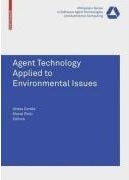A methodology for developing environmental information systems with software agents
Abstract
This chapter presents a unifying methodology for developing environmental information systems with software agents. Based on the experience reported in recent literature, we abstract common requirements of environmental information systems into agent types, combine state-of-the-art tools from computer science, service-oriented software engineering and artificial intelligence domains, as software agents and machine learning, and illustrate their potential for solving real-world problems. Specifically, two generic agent types are specified that behave as information carriers and decision makers, which provide an appropriate abstraction for deployment with added-value services in environmental management information systems. A concrete pathway for applying these instruments throughout the software lifecycle of an environmental management information system is outlined, along with suggestions for software specification and deployment. The method is demonstrated in two application domains: one for air quality assessment and another for meteorological radar data surveillance.
Download full text in pdf format
 Published as:
Published as:
I. N. Athanasiadis,
P. A. Mitkas,
A methodology for developing environmental information systems with software agents,
Advanced Agent-Based Environmental Management Systems, Whitestein Series in Software Agent Technologies and Autonomic Computing, vol. 21, pg. 119-138,
2009, Birkhäuser, doi:10.1007/978-3-7643-8900-0_6.
You might also enjoy (View all publications)
- CY-Bench: A comprehensive benchmark dataset for sub-national crop yield forecasting
- Hybrid phenology modeling for predicting temperature effects on tree dormancy
- To measure or not: A cost-sensitive, selective measuring environment for agricultural management decisions with reinforcement learning
